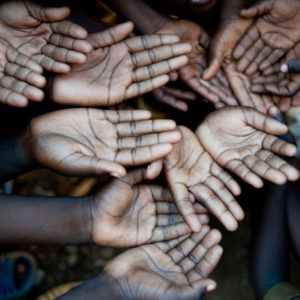In order to better understand when to transfuse children with severe anemia (hemoglobin less than 6 g per deciliter) researchers from the United Kingdom and Africa collaborated on the Transfusion and Treatment of Severe Anemia in African Children Trial (TRACT)—an open-label, factorial, randomized controlled trial at three sites in Uganda and one site in Malawi. The results of the first two randomizations published in The New England Journal of Medicine show no advantage to transfusing African children with severe anemia immediately or transfusing a higher volume of blood. In the first randomization, 1565 children (median age, 26 months) with uncomplicated severe anemia were assigned to be transfused (with 20 or 30 ml of whole-blood per kilogram of body weight) immediately upon hospital admission or the control group in which transfusions were triggered by new signs of severity or when hemoglobin dropped below 4 g per deciliter. No differences in mortality or clinical outcomes were observed over the 6 months of follow-up. In the second randomization, 3196 children (median age, 37 months) with complicated severe anemia were assigned different volumes of whole-blood to be transfused—either 20 ml per kilogram or 30 ml per kilogram of body weight. Mortality at 28 days nor 180 days was affected by the volume of blood transfused, but the study did observe that more children with fever than without fever died in the 30 ml group which calls for further investigation. Two more randomizations in TRACT are assessing children with severe anemia after discharge with differing care (adjunctive micronutrient supplementation or prophylaxis with trimethoprim-sulfamethoxazole, neither, or both).
References:
- Maitland K, Kiguli S, Olupot-Olupot P, Engoru C, et al. Immediate transfusion in African children with uncomplicated severe anemia. The New England Journal of Medicine 2019; 381 (5); 407-419.
- Maitland K, Olupot-Olupot P, Kiguli S, Chagaluka G, et al. Transfusion volume for children with severe anemia in Africa. The New England Journal of Medicine 2019; 381 (5); 420-431.
- Ingelfinger JR. Immediate transfusion and transfusion volume in African children with severe anemia. The New England Journal of Medicine 2019; 381 (5); 475-476.


i am really surprised about the outcome and goal of such study.what was the benefit . a child come with severe anemia and bad saturation of oxygen overal in tissue you just leave him with 200 ml transfused blood ? no iron, no vitamin B12 ,no folic acid. this blood will raise the Hemoglobin by how many gram per diciliter? if he has a HGB of 6 ?is that enough? please be generous thanks